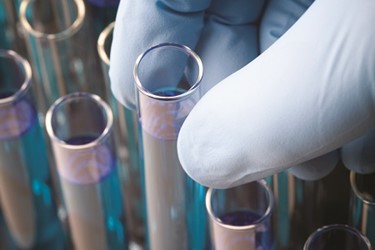Tips On Downstream Purification Processes

By Deborah Grainger
First published October 17, 2016 on www.Biocompare.com
Once protein purification work surpasses a certain scale in terms of volume, a measured and step-wise development of the bioseparation process is vital, keeping in mind possible further expansion of the workflow process farther along the lifespan of the purified product. This covers volumes of one liter all the way up to 2,000 liters and even beyond, where the separation process is referred to as downstream processing. Just as with exploratory and pilot scale protein purifications, downstream processing can be broken down into four consecutive stages: removal of insoluble materials, product isolation, product purification and product polishing. Of these, some steps offer greater opportunity to refine workflows over others, but any optimization work essentially focuses on how to get the most out of downstream processing for the lowest cost. The gains sought after here, however, are not just in terms of monetary savings and product yield; most importantly they also seek to maintain or even enhance product purity as, often, this scale is employed for the manufacture of protein-based therapeutics. This article provides tips on how to get the most out of your downstream processing workflow as well as considerations for its initial set up.
Get unlimited access to:
Enter your credentials below to log in. Not yet a member of Bioprocess Online? Subscribe today.
